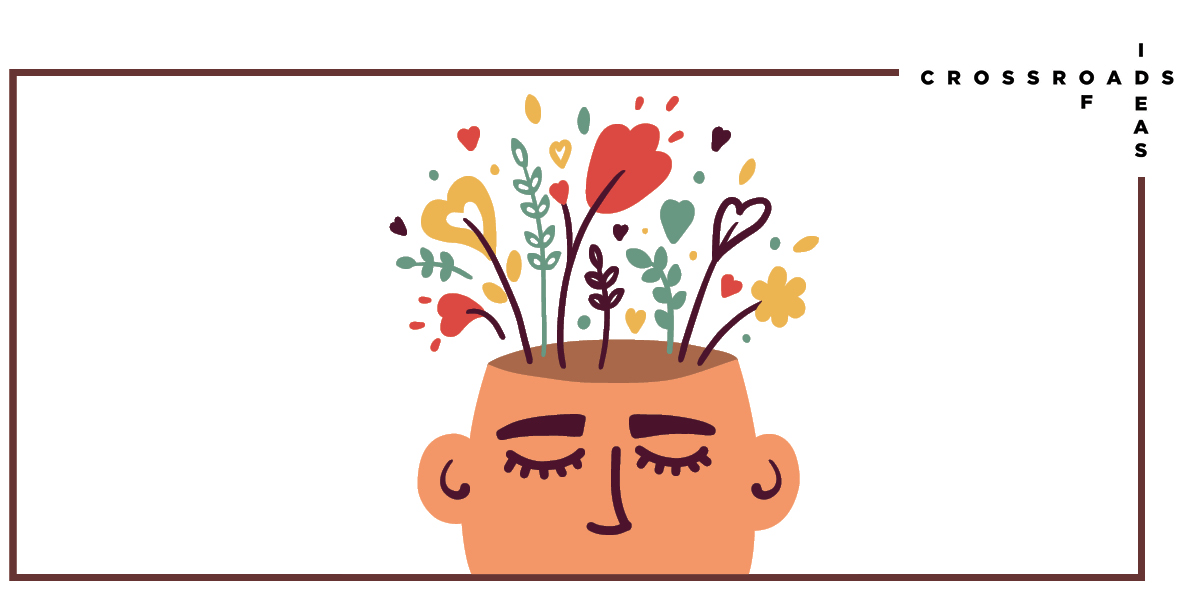Join us Nov. 9 for part two of the ‘Big Questions’ series
CONTACT:
Jeanan Yasiri Moe
Director of Strategic Communications
[email protected] | (608) 960-9892
MADISON, Wis. – Consciousness remains one of the great mysteries in both science and philosophy. Why is it so puzzling, and can we make progress in understanding it?
Crossroads of Ideas has teamed up with the UW-Madison Institute for Research in the Humanities for a five-part miniseries that examines big topics in philosophy, from free will to happiness, morality and more. Join us for the second installment of the Big Questions series on Tuesday, November 9, at 7 p.m. as a scientist and a philosopher explore consciousness.
Sign up for this event.
“If human beings are sure of anything, it’s that we are conscious. It’s odd, then, that we understand so little about what makes us conscious, or whether non-human beings can be conscious, or even how to define what it means to be conscious,” says Larry Shapiro, UW-Madison professor of philosophy.
“The prominence of consciousness in our lives, and the mysteries that surround it, make it a Big Question that should interest all of us.”
The November 9 discussion will feature:
- Jorge Morales, assistant professor of psychology and philosophy and director of the Subjectivity Lab at Northeastern University
- Yuri Saalmann, associate professor of psychology at UW-Madison
- Moderator Steve Paulson, executive producer of Wisconsin Public Radio’s To the Best of Our Knowledge
Paulson says, “If you had to pick the hardest problems in science, you’d probably end up with two: Where do the laws of physics come from? And how does the physical stuff in our brains produce conscious experience – our thoughts and feelings, our self-awareness? This mystery about consciousness has obsessed many people over the years, so it will be fascinating to hear how a scientist and a philosopher try to unpack this question.”
Other events in this series include:
- October 12: What is life?
- February 8: What is happiness?
- March 8: What is free will?
- April 5: What is morality?
The Crossroads of Ideas program is a public lecture series that addresses topics that matter to our community and are the subject of research at UW-Madison. The series generally is held in-person at the Discovery Building on the UW campus and is also available via livestream. More at warf.org/crossroads.
“We are fortunate to have access to a tremendous breadth and depth of expertise on the subject of consciousness in the UW-Madison community. This edition of Crossroads promises to make some of that expertise even more accessible to a wide audience,” says Laura Heisler, WARF director of programming and curator of the series.
About WARF
The Wisconsin Alumni Research Foundation (WARF) helps steward the cycle of research, discovery, commercialization and investment for the University of Wisconsin-Madison. Founded in 1925 as an independent, nonprofit foundation, WARF manages more than 2,000 patents and an investment portfolio as it funds university research, obtains patents for campus discoveries and licenses inventions to industry. For more information, visit warf.org.
About the Institute for Research in the Humanities
The Institute for Research in the Humanities (IRH) fosters research in the humanities and humanistic social sciences by creating a stimulating, intellectual community in which fellows can pursue their scholarly work, share it with other fellows and members of the campus, and benefit from intensive discussion with scholars from diverse disciplinary backgrounds, fields, interests, and methodological perspectives. For more information, visit irh.wisc.edu.
###
